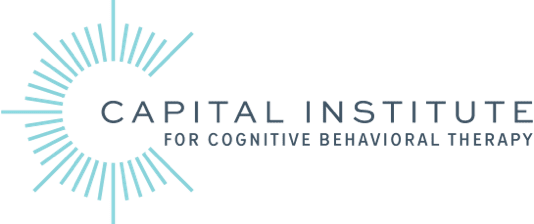Is It Adult ADHD? Understanding the Signs and Symptoms
Author: Dr. Jessica Nemeth
Here are some questions that we here at the Capital Institute have heard from our adult clients over the years, as they come in seeking answers for why they struggle with attention, focus and organization…and also want to know how to get help!
- Isn’t ADHD just a “kid thing”? If I struggle with attention, focus, and organization, aren’t I just lazy?
- If I never had a bad grade in school, or got in trouble in the classroom, how could I have ADHD?
- Isn’t ADHD treated solely with drugs? Even if I have ADHD, what really could help me now?
Adults who have noticed differences and challenges in their ability to concentrate and follow-through on plans and tasks, difficulty in managing sensory stimulation and communicating with others, or who feel frequently overwhelmed and anxious in their daily activities and tasks often wonder about ADHD. But the plethora of good information about ADHD, as well as outdated information and biases, is often overwhelming too!
Here at the Capital Institute, we help adults consider and reflect on their life experiences as well as current challenges in daily living. We use in-depth clinical interviews and assessments, to determine if ADHD is present and then to provide the best treatment. We take a multi-faceted approach that is grounded in respect for our clients and their strengths. We also respect ADHD itself, seeing it not simply as a problem to be solved, but a way to understand how our brains can work best in the world. Our clinicians help clients develop skills and understanding, and we work in congruence with other members of our clients’ team (such as psychiatrists, coaches, and organizers).
The journey towards understanding and managing adult attention deficit hyperactivity disorder (ADHD) is a process that begins with recognizing the signs and symptoms. Let’s look at how we start that journey.
Recognizing Adult ADHD
While we are referring to adult ADHD in this post, symptoms start in early childhood and persist into adulthood. However, it is very possible that an adult with ADHD will not remember ever hearing this diagnosis. Instead, many of our clients will reflect that they were often called hurtful names like “lazy”, “hyper” or “head in the clouds” by teachers or parents or friends. Some of them also recall a lifetime of struggling to complete even cherished goals; like finishing school or a graduate program, committing to a relationship, or maintaining performance at a job. For some, ADHD is not diagnosed until adulthood due to reasons like; children learn how to compensate for their difficulties, intelligence can overshadow behavioral difficulties, lack of awareness in the home and school environment about ADHD and its treatment.
Common Signs of Adult ADHD include:
- Difficulty Concentrating: Struggling to focus on tasks and frequently becoming easily distracted. Some people experience hyperfocus, becoming absorbed in a certain task or activity to the point that they appear distant, “zoned out” or inattentive.
- Impulsivity: Acting on impulses without considering the consequences, leading to hasty decisions. This may manifest in social situations as interrupting, failing to recognize social cues, and having difficulty allowing others to speak or following a conversation.
- Hyperactivity: Feeling restless and having difficulty sitting still for extended periods.
- Forgetfulness: Frequently misplacing items, forgetting appointments, or having difficulty organizing tasks.
- Time Management Challenges: Difficulty managing time effectively and often running late. Some people use elaborate time management or organizational “systems” to try to compensate for this, which can lead to overcomplicating a task, or spending excessive time on the “system”.
Our Evaluation Process
While many of our clients come in with deep knowledge of these signs and the difficulties they are experiencing, the evaluation process at CICBT goes deeper. After a comprehensive interview (we call it a conversation:) by one of our psychologists, we move to written and verbal evaluations that give us hard data on our client’s planning and decision-making skills, working memory (how we process, use, and remember information), reasoning skills (ability to think critically and problem solve), and visual and spatial skills (ability to perceive information in the environment). This full, formal evaluation can help identify an individual’s cognitive and behavioral strengths and challenges, as well as provide us with a reliable diagnosis that helps us to guide treatment. At CICBT, this supportive and thorough approach to diagnosis is just the beginning of helping, now we can move to an effective treatment plan.
Using only empirically-supported treatments, we help our clients with a variety of interventions; individual therapy, ADHD-specific counseling, as well as referrals and ongoing close consultations with prescribing psychiatrists as needed. We are informed about local and online resources for support groups, coaches, and “body doubling” services (where people with ADHD sign up to complete potentially frustrating and tedious tasks with each other via video calls, for accountability and encouragement).
Our treatment plans can also include treatment for problems with mood, like anxiety or depression, or any other psychological or medical diagnosis. The plan is for the person, entirely tailored to their needs.
Therapy Tailored For You
Navigating the process of finding a qualified healthcare provider for an ADHD assessment can be overwhelming. At CICBT, we understand the importance of connecting individuals with experienced, compassionate professionals who specialize in adult ADHD. Our team of psychologists are dedicated to providing thorough assessments, compassionate care, and evidence-based treatment options. Our clinicians in our Bethesda, MD office offer services to children, adolescents, and adults. We see older teens and adults in our downtown DC location.
If adult ADHD is impacting your life, you don’t have to navigate this journey alone. Take the first step towards a clearer understanding of your mental health. Contact us today to schedule an assessment and embark on the path towards effective treatment and management of your symptoms.
